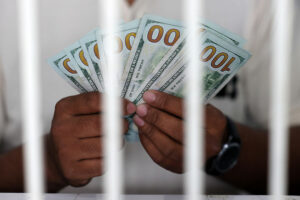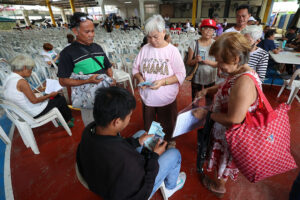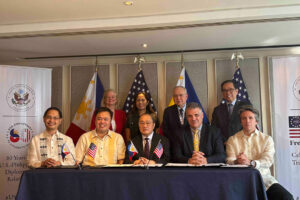By Dianne Araral
THE PHILIPPINES is seriously considering the introduction of small modular nuclear reactors (SMRs) as part of its long-term energy strategy.
The policy groundwork began with Executive Order (EO) No. 116 (2020) and EO No. 164 (2022), which together directed the government to adopt a national position on nuclear energy and integrate it into energy planning. More recently, Congress enacted the Philippine National Nuclear Energy Safety Act, establishing an independent nuclear safety regulator. The Philippines has also secured United States approval for the export of nuclear technology, including SMRs, following the entry into force of a civil nuclear cooperation agreement. President Ferdinand Marcos, Jr. has also met with SMR executives during visits to the US, signaling high-level interest in the technology. Domestically, government agencies have begun preliminary discussions on potential siting criteria, emergency preparedness, and grid integration.
What can SMR technology realistically deliver? How mature is it? How is safety ensured? And what regulatory and legal framework must be in place before any deployment can be responsibly considered in the Philippine context?
WHAT ARE SMRS?SMRs are generally defined as nuclear reactors with capacities of up to 300 megawatts (MW) per unit, compared with conventional nuclear plants that often exceed 1,000 MW. The “modular” aspect refers to factory fabrication of major components and on-site assembly.
For the Philippines, this matters for three reasons. Smaller units are easier to integrate into a grid with uneven demand centers. Incremental deployment allows capacity to be added over time rather than all at once. And modular construction is intended to reduce construction risk compared with bespoke, site-built megaprojects like the one in Bataan.
However, these advantages are conditional. On the first unit, SMRs behave less like standardized infrastructure and more like prototype nuclear plants. Modularity delivers benefits only after repetition and this lesson is crucial for a first-time adopter like the Philippines.
A single 300-MW SMR operating at a high-capacity factor can produce roughly 2-2.5 terawatt-hours (TWh) of electricity per year, enough to power a large city or several industrial zones, but it is not transformative on its own. Any serious impact on the national power mix would require multiple units deployed over time.
This has implications for planning. SMR adoption is not a one-off procurement decision but a programmatic commitment. Grid upgrades, transmission planning, and workforce development must assume a pipeline, not a pilot.
STATUS OF SMR TECHNOLOGYGlobally, SMRs are at uneven stages of readiness. For example, in the United States, NuScale’s VOYGR SMR became the first design to receive certification from the Nuclear Regulatory Commission, yet its flagship Idaho project was canceled in 2023 after costs escalated, showing that regulatory approval does not eliminate first-of-a-kind risk. In China, the HTR-PM reactor has entered operation, but only as a state-led demonstration embedded in sovereign finance. Russia operates floating SMRs, though entirely under state ownership. Canada and the United Kingdom are advancing SMR licensing with public backing but have yet to deliver commercial fleets.
Taken together, SMRs are technically real but commercially immature, operating today only where governments absorb early risk and uncertainty. This matters because nuclear risk is front-loaded. The first unit carries the burden of design finalization, licensing interpretation, supply-chain qualification, and workforce training. These are precisely the risks that drive delays and cost escalation.
In practice, countries mitigate this by importing experience. The United States relies on a strong, technically independent regulator to license new designs. Canada has paired SMR development with a public utility that can absorb early risk and learning. The United Kingdom has had to revisit its regulatory and financing approach after early projects exposed the cost of uncertainty.
SAFETY: WHAT IS DIFFERENT, AND WHAT IS NOTSMRs are often described as “safer by design.” There is substance behind this, but it needs to be understood carefully.
Many SMR designs emphasize passive safety systems that rely on natural forces — gravity, convection, pressure differences — rather than active pumps or operator intervention. Some place the reactor underground, adding physical protection. Others integrate major components into a compact vessel, reducing potential leak points.
These features can reduce certain risks, particularly those associated with loss of power or cooling. But they do not eliminate risk. Nuclear safety ultimately depends on regulation, operations, maintenance, emergency planning, and institutional culture.
This is where geography matters. For the Philippines, seismic risk, typhoons, flooding, and evacuation logistics must shape siting decisions and emergency planning. Passive safety helps, but it does not substitute for conservative siting and a regulator empowered to enforce stringent standards.
LICENSING AND TESTING: THE REAL BOTTLENECKOne common misconception is that reactors are “tested” like other technologies, but nuclear plants are licensed — a comprehensive process covering design, site characteristics, construction methods, operations, and emergency response.
In countries with mature regulators, licensing still takes years. For SMRs, it can be more complex because many rules were written for large reactors. Regulators must decide how existing standards apply to new designs.
This is why the creation of an independent nuclear regulator in the Philippines is so important — and why it must be resourced, staffed, and protected from political pressure. Without regulatory credibility, licensing delays are inevitable, and financing costs rise sharply.
THE LEGAL FRAMEWORK: BEYOND SAFETY REGULATIONAdopting SMRs requires a complete legal architecture, not just a safety regulator. First, nuclear liability and compensation rules must be clear. Investors, insurers, and host communities need certainty about who pays, how much, and under what conditions in the event of an accident.
Second, radioactive waste management and decommissioning obligations must be specified upfront, with funding mechanisms that cannot be deferred. Countries that postponed these questions have paid for it later.
Third, siting authority and local consent processes must be transparent. International experience shows that nuclear projects fail politically when communities feel decisions are imposed rather than governed by clear rules.
Fourth, alignment with energy, tariff, and PPP laws is essential. SMRs do not fit neatly into merchant power models. Legal clarity on offtake, government support, and consumer protection is necessary to avoid disputes and renegotiation.
LESSONS FROM ABROAD, IMPLICATIONS FOR PHLInternational experience offers consistent lessons.
The United Arab Emirates (UAE) anchored its first nuclear project in a state-owned entity, imported an experienced operator, and built regulatory capacity in parallel. The result was disciplined execution. The lesson is not to copy the UAE’s model wholesale, but to recognize that early nuclear projects work best when the state anchors capability and risk.
The United Kingdom learned the hard way that pushing uncertainty onto private investors raises costs. Its later shift toward regulated approaches reflects an effort to lower financing costs by reducing risk upfront.
France demonstrates the benefits of treating nuclear as strategic infrastructure with regulated economics, while also highlighting the importance of managing long-term liabilities transparently.
In China, rapid deployment and lower costs stem from risk reduction through standardization and repetition — conditions that cannot be replicated in the Philippines, but which underscore the value of learning and scale.
For the Philippines, the promise of SMRs depend on conservative technology choices, credible regulation, and complete legal foundations on safety, liability, waste, and siting.
Dianne Araral is a green finance and energy policy researcher based in Singapore.


















